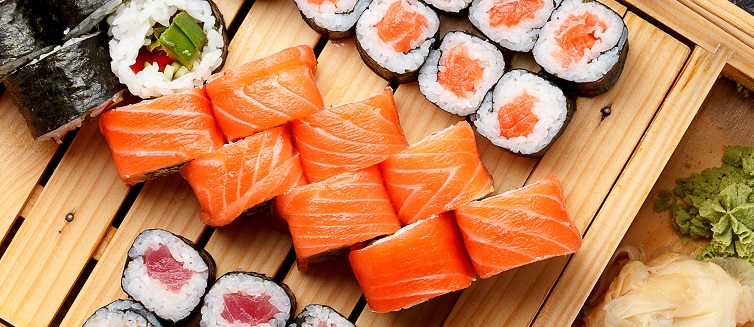Pregnancy brings dramatic changes to your body, digestive system, and immune system. As a result, pregnant women need to pay special attention to what they eat to protect the health of both themselves and their unborn baby — which may mean forgoing some of your favorite foods.
Here are a few common items that may need to be on your dietary “no” list for the next nine months:
Never Miss a Beat!
Subscribe to Our HealthBeat Newsletter!
Thank you for subscribing!
You can now select the specific newsletters you'd like to receive.
You are already subscribed.
Subscribe to more newsletters in our email preference center.
Sorry, an error occurred. Please try again later.
Get Healthy Tips Sent to Your Phone!
Food and Drink to Avoid While Pregnant
1. Alcohol
The consensus on alcohol is clear — it should not be consumed during pregnancy. There is no safe level of alcohol consumption during pregnancy, according to the Centers for Disease Control.
Drinking while pregnant poses a risk of fetal defects, fetal alcohol syndrome, and premature birth. Try trading your favorite mixed drinks for a virgin version instead.
Make an appointment to speak with an expert at the Magee-Womens Hospital of UPMC for more.
2. Raw batter or dough
Cookie dough and cake batter made with uncooked eggs can carry salmonella, and pre-made cookie dough has been linked to E. coli infections. It’s best to bake cookies and cake first to these desserts don’t put you at risk
3. Feta, brie, queso fresco, any soft cheese made from raw milk
Soft cheeses made from unpasteurized milk can harbor listeria or E.coli. Hard cheeses, like cheddar and mozzarella, are still safe for snacking.
4. High-mercury fish
Shark, tilefish, king mackerel, and others can contain high levels of mercury. This mercury can lead to a variety of birth defects in babies, including visual and hearing impairment and brain and spinal cord developmental issues.
Other seafood favorites, like salmon, tilapia, and shrimp can be a healthy part of your pregnancy.
5. Sushi and other undercooked fish and seafood
While we’re talking about seafood, undercooked fish may house bacteria that’s dangerous to you and your baby.
If you’re pregnant, always thoroughly cook fish before eating. Raw oysters and clams can house Vibrio bacteria and should be cooked to at least 145 degrees Fahrenheit. For more information, see this guide to eating seafood during pregnancy.
6. Unpasteurized milk and juices
Raw cider and milk may contain harmful bacteria — so pour a glass of the pasteurized variety instead.
Raw cider may hold E.coli. Unpasteurized milk can contain a host of bacteria, including salmonella, listeria, and campylobacter, in addition to E.coli.
Pasteurization, however, makes these beverages safe, so be sure to check labels before you buy.
7. Raw or undercooked vegetable sprouts
Raw sprouts seem like a healthy option. But sprouts that have been grown in the ground cannot be easily washed to remove or kill bacteria. Mung bean, radish, clover, and alfalfa sprouts should be thoroughly cooked before you munch on them.
8. Grocery store chicken salad and tuna salad
Make salads with mayonnaise-based dressings at home. Ham, chicken, and seafood salads made in grocery stores may not have been properly prepared — leading to risk of listeria exposure.
Make these salads at home to ensure each ingredient has been thoroughly cooked and safely refrigerated to prevent bacteria growth.
About UPMC Magee-Womens
Built upon our flagship, UPMC Magee-Womens Hospital in Pittsburgh, and its century-plus history of providing high-quality medical care for people at all stages of life, UPMC Magee-Womens is nationally renowned for its outstanding care for women and their families.
Our Magee-Womens network – from women’s imaging centers and specialty care to outpatient and hospital-based services – provides care throughout Pennsylvania, so the help you need is always close to home. More than 25,000 babies are born at our network hospitals each year, with 10,000 of those babies born at UPMC Magee in Pittsburgh, home to one of the largest NICUs in the country. The Department of Health and Human Services recognizes Magee in Pittsburgh as a National Center of Excellence in Women’s Health; U.S. News & World Report ranks Magee nationally in gynecology. The Magee-Womens Research Institute was the first and is the largest research institute in the U.S. devoted exclusively to women’s health and reproductive biology, with locations in Pittsburgh and Erie.
